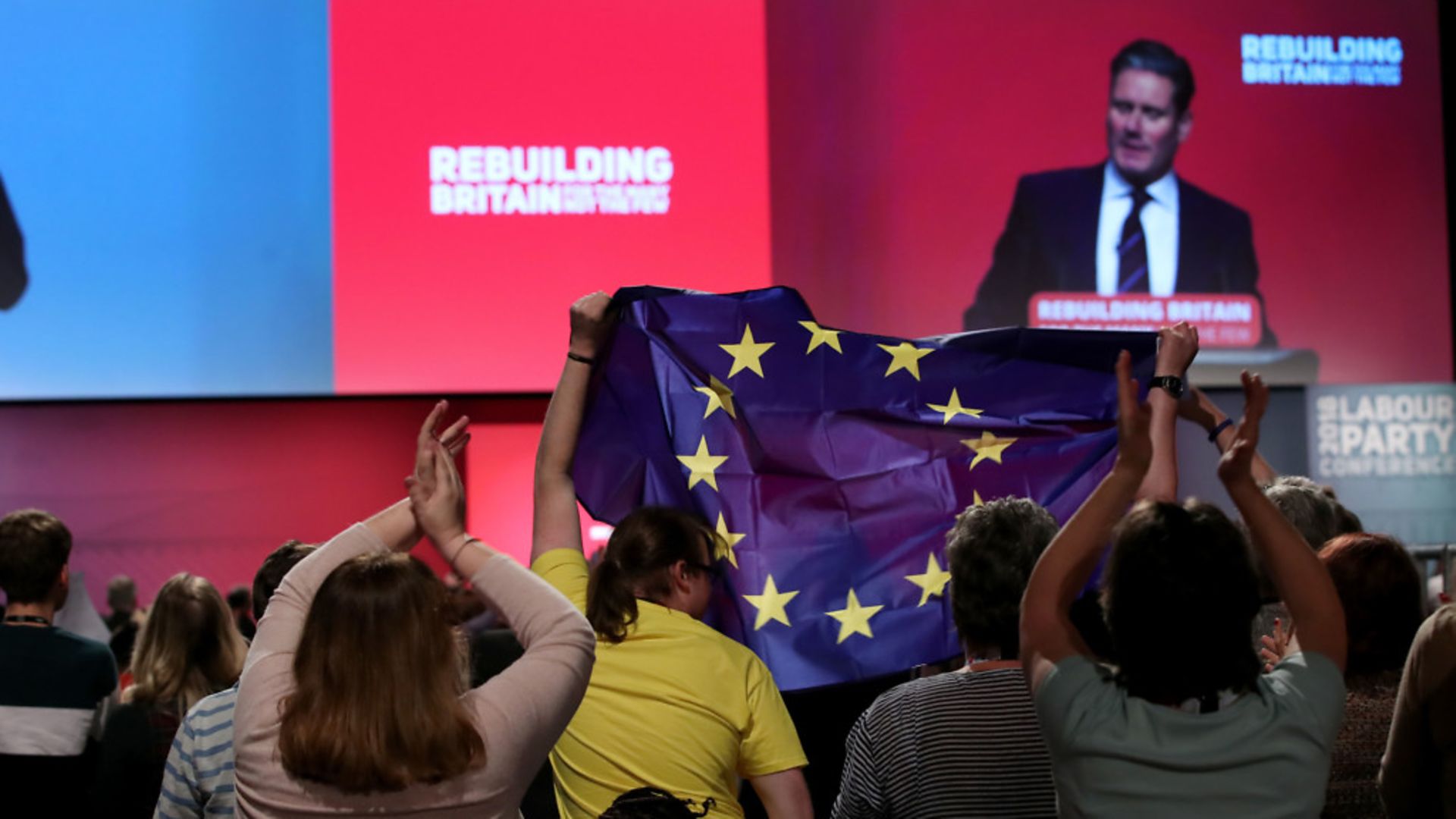
Labour will have to live with its decision on how it votes over a Brexit deal for years to come, says DENIS MacSHANE.
Forty nine years ago, 69 brave Labour MPs broke with the party’s conventional wisdom, defied the official whip, and voted to take Britain into Europe. Amongst them was a future party leader, John Smith. The Labour votes made the difference as anti-European Tories were sufficient to deny a majority for Britain joining in European partnership.
Like the question of Ireland in the 19th and early 20th century, the question of Europe has wreaked immense damage on political parties, the scarring of which will last for years.
Labour after 1979 became a Brexit party even to the extent of making withdrawal from Europe its official policy for the 1983 manifesto. As young opposition MPs, most of the future big beast ministers in Tony Blair’s government like Robin Cook, Jack Straw and David Blunkett were as hostile to Europe as Nigel Farage or any current member of Boris Johnson’s government.
Now the party’s leader, Sir Keir Starmer, faces an unenviable dilemma. If Labour MPs voted with a Tory government to enter Europe, will they vote with a Tory government to take not just England, but Scotland and Northern Ireland – where there is a majority for continuing European partnership – out of the EU?
There is no obvious answer. The question of how Labour votes on a possible Brexit withdrawal deal has no easy way forward. It is unlike the row over the suspension of Jeremy Corbyn, which left Sir Keir with little choice as his predecessor as party leader, a man of pride and self-belief, refused to find the necessary words to offer an adequate apology.
But the idea of Labour being the little helpmates of Boris Johnson and the other anti-European ideologues in the cabinet will echo for many years. Not the least in Scotland where the SNP will brand Labour as a pro-Brexit party lining up with a prime minister who is now loathed north of the border as a symbol of all the arrogant elite southern English disdain for Celtic Britain.
To be sure, the problem may be solved for Labour by Johnson insisting that 27 sovereign governments must capitulate to a Nigel Farage-type total rupture, whatever the cost to Britain’s car industry, its farmers, and many other economic sectors. Labour can hardly back a no-deal crash out.
It is also not clear if a vote has to be held. The deal, if one is secured, will be an international treaty which is not normally voted up or down in the Commons but instead enters law via secondary legislation and a statutory instrument. But it would be odd indeed for the Commons not to debate and authorise the deal.
Labour might look back to John Smith, a stanch pro-European in favour of the Maastricht Treaty which gave birth to the European Union. A brilliant parliamentary tactician Smith mobilised Labour MPs to vote against the stunted, deformed version of the EU shorn of all its social and environmental provisions which John Major sought to force through.
It is inconceivable that any deal Johnson might accept will meet the criteria Labour has set out for an acceptable set of arrangements for Britain to be cut off from Europe.
Abstention is a possibility but rarely impresses voters. The duty of Her Majesty’s Opposition is to oppose, not crawl under the duvet and wish a tough decision could be avoided.
There is no evidence that Labour will win votes by being Boris Johnson’s little helpers. Some 70% of Labour voters also voted against Brexit. Any Labour canvasser will confirm that seats, whether red wall ones or any others, were lost not because of Brexit, which was hardly raised on the doorstep a year ago, but by the almost Pavlovian refusal of voters to contemplate the idea of Jeremy Corbyn as prime minister.
When Labour did well as in 2017 it was by speaking for the young, the cities and university towns angry with the lies that deprived tomorrow’s generation of their hope of living, studying, or working on the continent without let or hindrance.
As jobs are lost and images of trade chaos at our borders fill the news in 2021, Labour should be very careful about being seen as co-responsible. Labour has taken some big international decisions – standing with Churchill against Nazism, supporting Nato and the Marshall Plan which laid the basis of Europe’s peace and prosperity, and 69 Labour MPs making Europe stronger by helping to take Britain in.
Until all the facts of the deal are known one can only wish Labour MPs and their leader well in deciding what course of action to follow in the voting lobbies of the Commons. But in politics it is often better to do what you believe in rather than look for a comfortable fence to sit on while big decisions are taken.
Denis MacShane is a former Minister of Europe and author of Brexiternity: The Uncertain Fate of Britain (IB Tauris)









